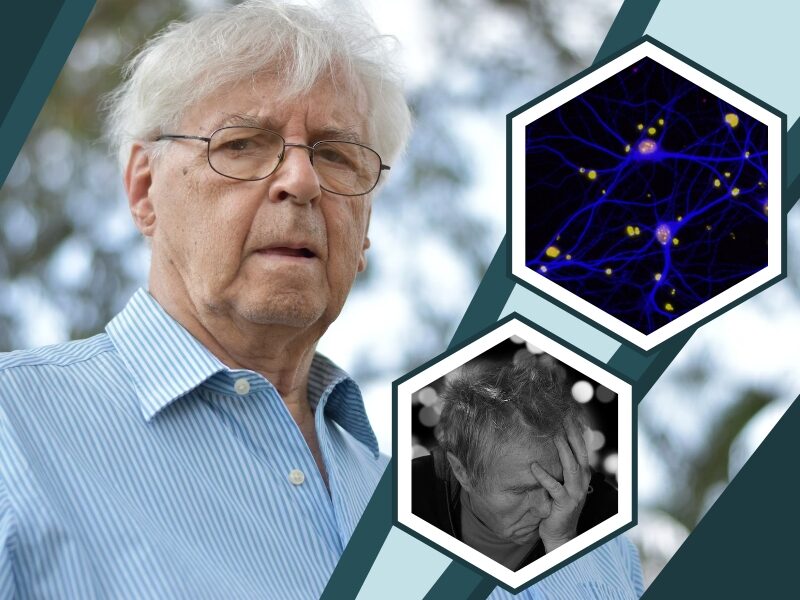Alzheimer: Symptoms, Stages, Causes, and Treatment

What is Alzheimer’s Disease?
Alzheimer’s disease is a brain illness that slowly destroys thinking and memory skills. Eventually, this condition leads to difficulty in carrying out the simplest tasks. Most people with the sickness or those with the late-onset type symptoms first appear in their mid-60s. Early onset of this condition between a person’s 30s and mid-60s is very rare. It involves parts of the brain that control thought, memory, and language that can seriously affect your ability to carry out daily activities.
Signs and Symptoms of Alzheimer’s Disease

The symptoms of this condition vary from person to person, and may include problems with:
- Impaired reasoning or judgment, can impact decisions
- Vision and spatial issues, like awareness of the space around them
- Word-finding, or having more trouble coming up with words than other people the same age
Other symptoms may be changes in the person’s behavior including:
- Trouble managing money and paying bills
- Taking longer to complete normal daily tasks
- Losing things or forgetting them in odd places
- Wandering and getting lost
- Increased anxiety and or violence
- Mood and personality changes
- Repeating questions
Stages of Alzheimer’s Disease
This condition can range from minor to severe. The scale ranges from a state of mild impairment to moderate impairment before eventually reaching severe cognitive decline.
- Mild stage. People with mild conditions develop memory problems and cognitive difficulties that may include taking longer than usual to perform daily tasks and difficulty managing money or paying bills. You may also experience personality and performance changes.
- Moderate stage. In moderate conditions, the parts of the brain responsible for senses, reasoning, consciousness, and language are damaged. This can lead to greater memory loss and confusion, difficulty knowing friends or family, incapability to learn new things, and difficulty performing tasks. You may also experience a struggle to cope with new situations, imprudent behavior, hallucinations, delusions, or fear.
- Severe stage. In this condition plaques and tangles are present throughout the brain, causing the brain tissue to shrink greatly. This can lead to an incapable to communicate and dependency on others for care. Being unable to leave bed all or most of the time.
Treatment and Management of Alzheimer’s Disease
Unfortunately, Alzheimer’s disease has no available treatment but some medications can slow down its progress and help with behavioral changes. Doctors often recommend antidepressant drugs to treat anxiety, aggression, depression, and restlessness. Anti-anxiety drugs are also used to treat agitation along with anticonvulsants to treat aggression.
Medication Used for Alzheimer’s Disease
Memantine HCI. It is used to treat moderate to severe dementia related to this condition. It works by decreasing abnormal activity in the brain. Memantine may improve the ability to think and remember or may slow the loss of these abilities in people who have AD.

Lifestyle and Home Remedies for Alzheimer’s Disease
- Diet. A diet high in healthy fats, whole grains, lean, proteins, fish, fruits, nuts, and vegetables has been shown to fight obesity and diabetes and to improve mental function.
- Healthy sleep. Sleep is our body’s way of resetting. Proper peaceful sleep allows our body and brain the time needed to restore balance to our systems. This helps decrease the risk of dementia and AD.
- Improving heart health. Cardiovascular well-being is a major risk factor for AD. Keeping a healthy heart can reduce the risk of developing AD.
- Social interaction and an active mind. Can lead to happiness, using a positive effect on patients with AD and their families. Learning a new activity, such as dancing, creates new pathways of communication in the brain.
- Exercise. Small choices today, such as taking the stairs or parking farther away, can make a big change tomorrow. Avoiding AD through increased exercise is a positive choice we can make to improve mental function for years to come.
- Lowering stress. Mindfulness practices like yoga, meditation, or breathing exercises help reduce stress. Devote more time outside in green spaces. It’s proven to decrease stress, and it encourages exercise. Furthermore, staying inside seems to contribute to the risk of dementia.



